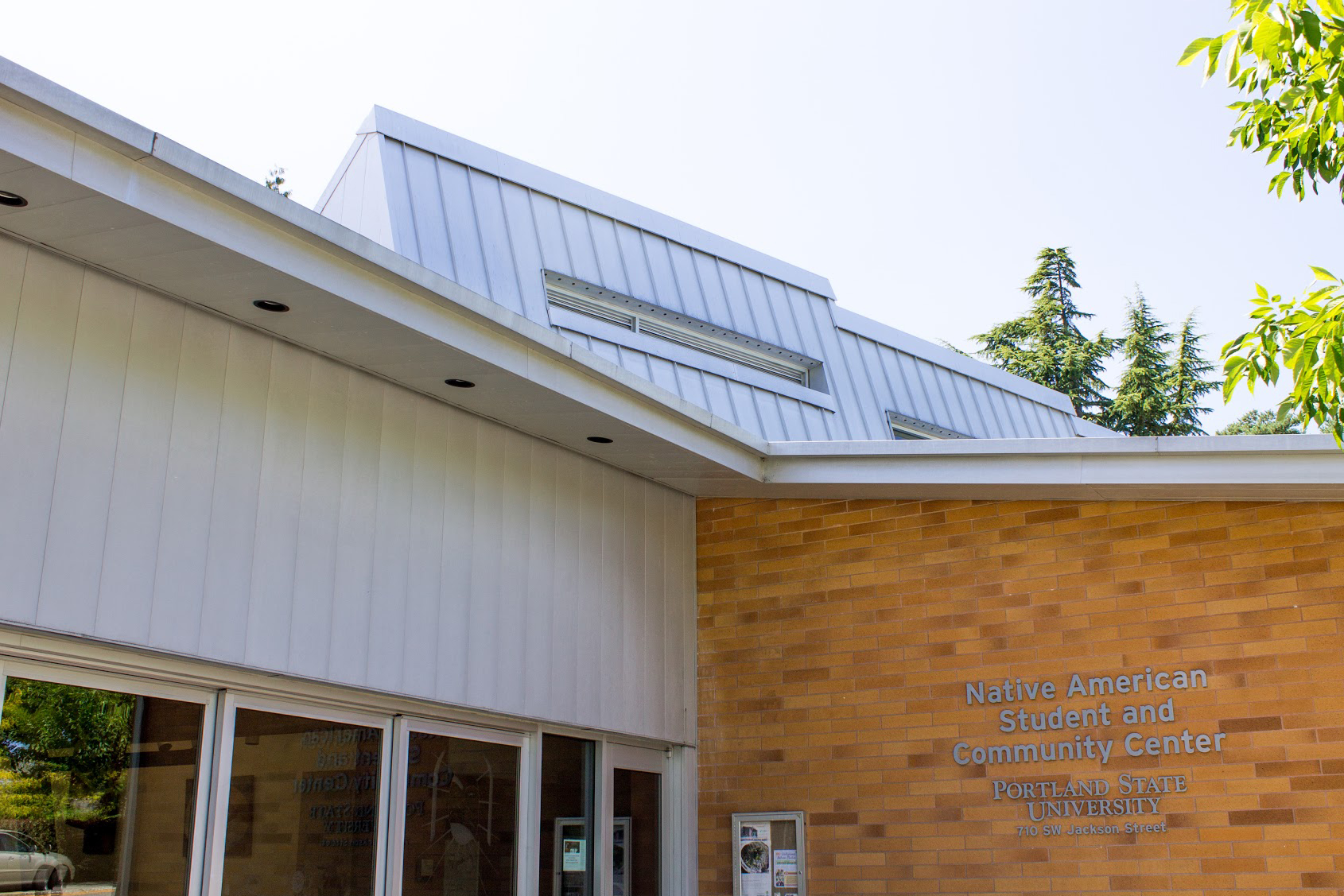Face it, life as an Indigenous student on any non-tribal college campus can be pretty tough. Even the most urban of urban Indigenous students will face their fair share of challenges, from learning to navigating social situations, new faces from new places and a whole host of other situations we never anticipated before.
But fear not, cousins! The Native American Student and Community Center is here for you.
The Native American Student and Community Center is located at 710 SW Jackson Street, on the south end of campus. Services available there include meeting spaces, a computer lab, study spaces and even a place for kids to play. Art fills the area, and the main hall includes flags of various Indigenous nations, including several that helped fund the center.
NASCC is a hub for Indigenous students that offers the kind of place a lot of Indigenous students need to succeed. This can range from a space for studying to a place to craft with other Indigenous students, but it can also be a place to center and refocus yourself.
The meaning of having such a space on campus is not lost on the staff of the NASCC.
Alina Begay (Navajo) is a Portland State student and the manager of the NASCC and described the space as “like a home away from home for Native American, Alaska Native and Pacific Islander students.”
“It’s really a space for our students to feel safe and [to] recognize that these lands were originally Indigenous lands,” Begay said. “Some of the students come from reservations that are in a rural small town area and everyone knows everybody and everyone’s Native. And then they come to school here and it’s the first time that they’ve ever been away from home, which is hard in the first place but also it’s the culture shock of not living on a reservation anymore and people not understanding your cultural differences.”
Begay listed events at the NASCC, including a quarterly potluck and a daily smudge.
Ginger McCormick (Double-Headed Raven/Dog Salmon Clan), a staffer at NASCC and currently a PSU student pursuing a biochemistry major, cited Honor Day as the most meaningful event to her.
“Watching all the Natives from everywhere, seeing them graduate, and seeing the leaders of this building that work this building all year around be able to hand them their [gifts], it lets you know that at the end of your goals and the achievement of getting your education, you really just leave peacefully and get recognized personally. It’s really motivating to me,” McCormick said.
McCormick cited the influence of the Indigenous Nations Studies faculty as very important.
NASCC “[helped] me become a better leader and the correct way to do it, and Dr. [Cornel] Pewewardy is definitely a person, a good mentor, in that specific role to help you speak out properly and get your message across,” McCormick said. “Judy Bluehorse[-Skelton] was definitely there from the beginning to ensure patience within.”
NASCC truly is, as Begay described it, “a physical manifestation of us surviving.”
NASCC is located at 710 SW Jackson St., and is open year-round.






